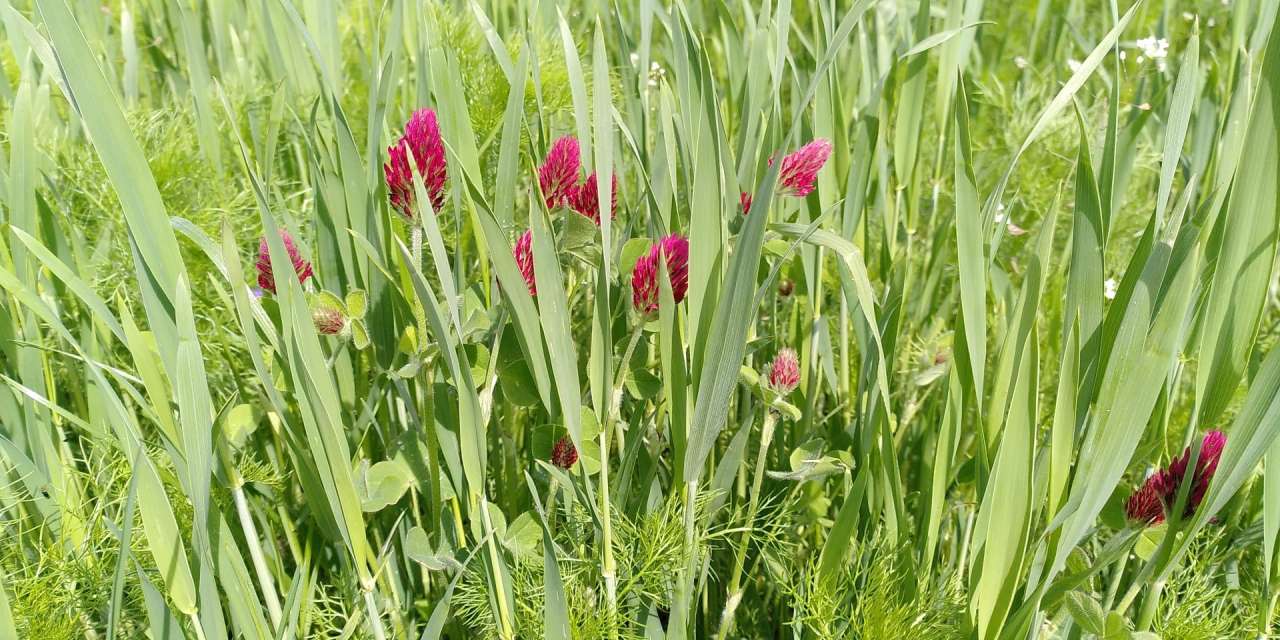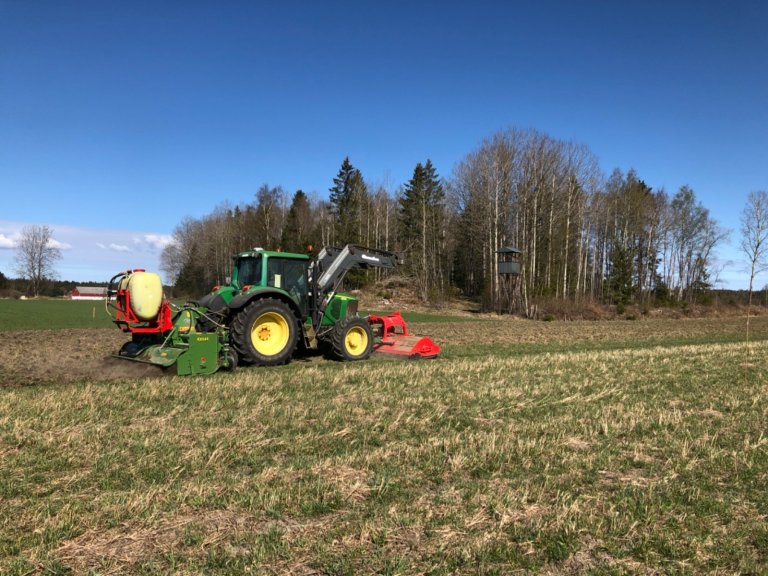Division of Biotechnology and Plant Health
REKORN: Can regenerative cultivation methods contribute to reduce the risk of fungal diseases in cereals?

End: dec 2026
Start: jan 2024
Regenerative agriculture is referred to as a bridge between organic and conventional agriculture and has received increased attention in recent years. Regenerative agriculture focuses on soil health and cultivation measures that can stimulate soil life and plant growth. An improvement in soil health is visualized, among other things, in increased carbon storage in the soil, limited soil compaction and increased microbiological diversity. The methods used to improve soil health within cereal cultivation may include crop rotation, reduced tillage, intercropping, use of catch crops and surface composting where plant residues are mixed into the top-soil layer.

| Status | Active |
| Start - end date | 01.01.2024 - 31.12.2026 |
| Project manager | Ingerd Skow Hofgaard |
| Division | Division of Biotechnology and Plant Health |
| Department | Fungal Plant Pathology in Forestry, Agriculture and Horticulture |
| Total budget | 1620000 |
The cultivation methods used in regenerative agriculture may, in addition to affecting the health of the soil, also affect plant health. Cultivation conditions that facilitate optimal growth conditions for plants may limit the risk of pests (including plant diseases).
Cultivation methods used in regenerative agriculture (surface composting, treatment of seeds or plants with biological preparations, etc.) may facilitate the colonization of plants by fungi and bacteria. There is a need to develop more knowledge about whether and to what extent plant health in cereals grown under a regenerative cultivation practice in Norway differs from plant health in cereals from fields with more conventional cultivation practices.
"Regenerative region" is an interdisciplinary network of farmers, advisers, and researchers who co-create research on soil health and regenerative agriculture in Norway. In the "REKORN" project, we want to join this network to compare plant health in cereal grains harvested from fields in which various cultivation methods used within regenerative agriculture are implemented.
Through REKORN, we aim to develop knowledge concerning the connection between soil- and plant health. The project aims to identify cultivation measures within regenerative agriculture that may potentially reduce the incidence of fungal diseases in grain. If the project identifies cultivation methods within regenerative agricultural practices that seem to limit the risk of fungal diseases in cereals, these can be included in an integrated control strategy as an alternative to chemical pesticides and thus contribute to a reduced use of chemical pesticides.
The target group for the project is mainly grain growers and advisers. In addition, the knowledge gained may be of interest to administration and the national and international research environment.
